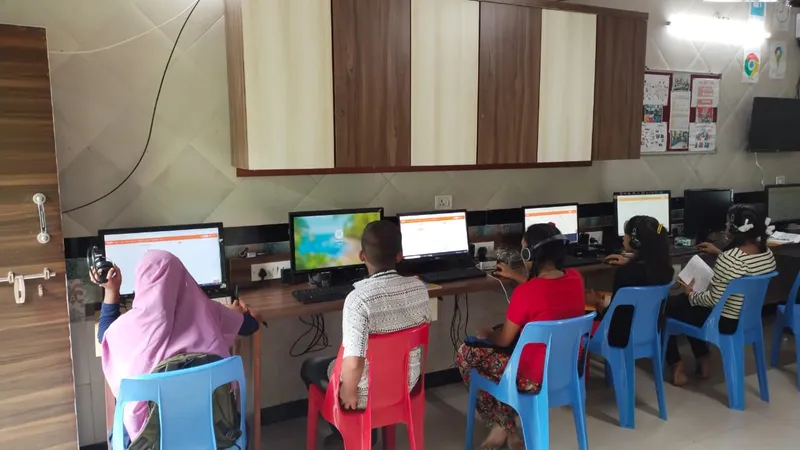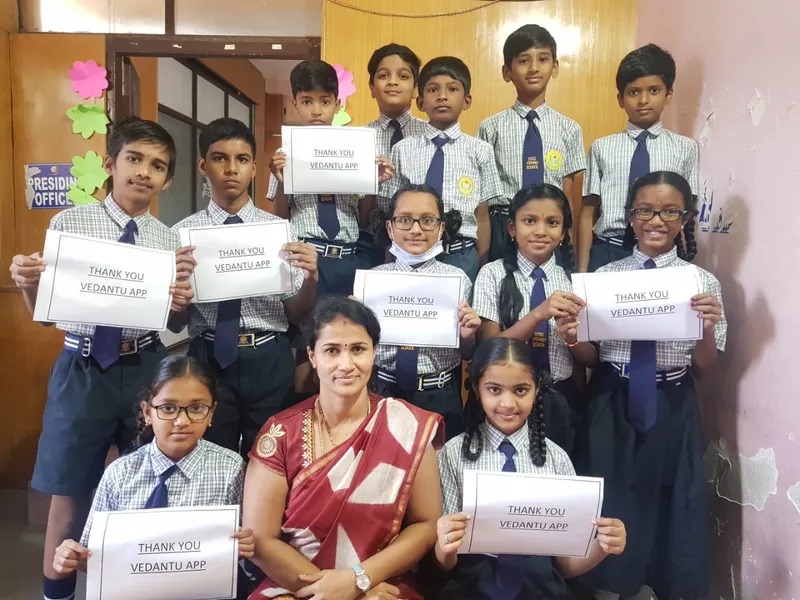How Vedantu plans to help 15K Covid affected students through its Help India Learn initiative
Bengaluru-based edtech startup Vedantu allocated a budget of over Rs 15 cr in 2021 to assist students who are unable to access for-profit edtech due to financial constraints or digital divide.
Edtech startup launched the initiative Help India Learn in May 2021, at the peak of the second wave in the country. At the time, it allocated over Rs 15 crore under this initiative to assist nearly 15,000 impacted children with continuing their education and academic progress.
Vedantu believes education is the only way they can create a level playing field for children of the country and beyond.

“While we were building in this direction, we understood that after a few years, for-profit edtech, despite innovations, will not be able to reach the segment of the society who have absolutely no means to devices or the internet. That is when we thought about doing something to create equal opportunities for all children,” Pulkit Jain Vedantu’s co-founder and Head of New Initiatives and Culture, tells SocialStory.
Bridging the digital divide
Vedantu's objective through the Help India Learn initiative is to assist students who are unable to access for-profit edtech due to financial constraints or a digital divide. Through this initiative, the startup aims to reach out to young ones directly impacted by the pandemic by providing emergency food and medical assistance along with a long-term academic mentorship. By adopting these children academically, the startup aims to make sure their learning never stops.
“With all the technology content and processes we have created, we wanted to create something formally that can be leveraged in collaboration with NGOs and government bodies who are working with disadvantaged children on the ground. We wanted to see how we can become their academic parents to take care of their educational needs on a long-term basis,” Pulkit adds.
Under the initiative, Vedantu works in tandem with NGOs working for the cause of children affected by COVID-19. These organisations ensure that resources are provided to the affected children as soon as possible in a transparent manner.
Partnering with NGOs
Sridhar R - AVP, Academic Operations in Vedantu says that one of their initial challenges was to identify the needy students, and reaching out to them.
“That is when we started talking to NGOs that are working on the ground in different parts of the country and partnered with like-minded people and organisations. NGOs are our on ground support function,” explains Sridhar.
Currently, the startup is working with eight NGOs, namely DCPCR, Bal Utsav, Indian Express Foundation, HAQ foundation, PII India, Dharma Bharathi Mission, Sattva, and Kolkata Rescue.

Students using Vedantu with collaboration with NGO Dharma Bharti Mission (DBM)
By collaborating on a weekly basis, it looks into students’ learning patterns, attendance and participation. As for students who are not attending, the startup and the NGOs reach out to the parents to understand the reasons behind the absence, and try to offer solutions.
“We invest a lot of time in interviewing these NGOs and analysing the kind of work they are doing on the ground. We talk to families or the children they’re supporting. After building trust, we see the alignment with them in terms of the philosophy and the vision, and then we connect with them,” says Sridhar
Vedantu’s employees take part in this initiative voluntarily. According to Sridhar, there is a dedicated army of volunteers who own this entirely - talking to the students, following up with them about the classes and their general wellbeing and thus helping create systems and processes to onboard the children seamlessly.
Additionally, Vedantu has also signed a memorandum of understanding (MOU) with the Govt. of Madhya Pradesh; pledging Rs 20 lakhs for children impacted by COVID-19. Vedantu has joined hands with the Dept of Women & Child Development (WCD), Government of Madhya Pradesh (MP) and NCPCR (National Commission for Protection of Child Rights) to assist children adversely impacted by the pandemic through academic sponsorships.
Creating an impact
Pulkit shares that in the initial days, there was only 10 percent engagement from the students- mainly due to their socio-economic background. A key challenge faced by the team was making the students realise the importance of education and attending classes regularly.

“While we do that, it is very important to keep in mind that these children might not be able to study, not just economically but even academically. The idea here is that we should be able to evolve and continue to build this over the next five-six years so that they have some meaningful impact,” continues Pulkit, while citing the example of a child who was in class 8, but had the academic capability of a class 3 student.
However, he says that with able support from NGOs, Vedantu can now showcase the progress in each child against various parameters such as their engagement level, degree of learning, and more.
“We have benchmarking testing mechanisms through which we will assess the level after periodic intervals. We want to create a transparent layer of data where students in these societies can be impacted by edtech like Vedantu,” adds Puklit.
So far, Vedantu has onboarded and impacted over 6,000 children and it intends to enroll more than 15,000 students in a few months. About 98 percent of the onboarded students are of 10- 16 years of age studying in grade 5-10 and majority of them coming from Maharashtra and Karnataka.
Edited by Anju Narayanan


![[YS Learn] The Vedantu story: How a non-techie built and scaled an edtech startup](https://images.yourstory.com/cs/2/a9efa9c02dd911e9adc52d913c55075e/Imagepkrp-1607259672872.jpg?fm=png&auto=format&h=100&w=100&crop=entropy&fit=crop)





